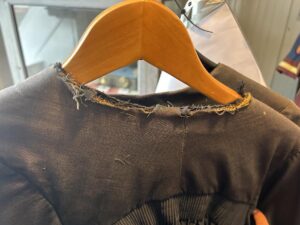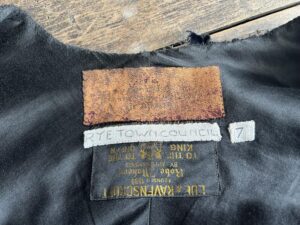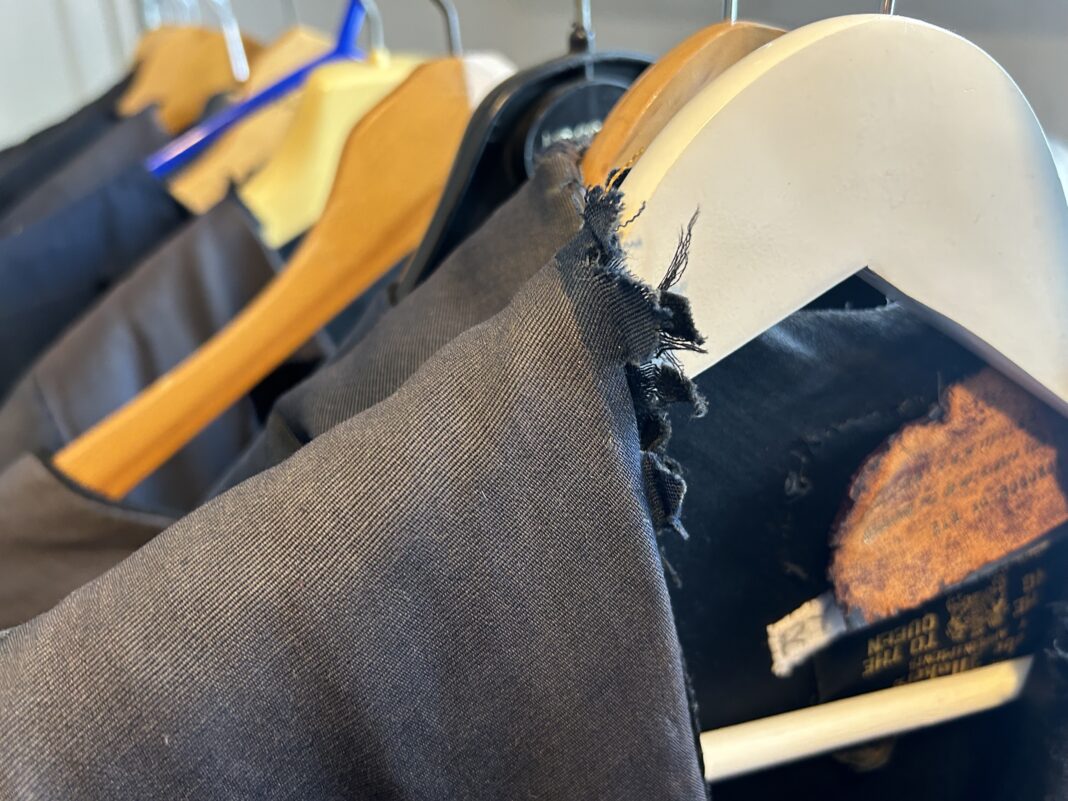In last week’s opinion column (You can’t eat tradition), Guy Harris put forward an eloquent argument that the proposed expenditure on new robes for the town councillors would be better spent on relieving hardship or operating toilets, and suggesting that the cost of maintaining our town’s traditions was unjustified during a cost of living crisis.
As Rye’s town crier and town sergeant, it is part of my role to defend and preserve the town’s traditions, history and civic ceremony; naturally I believe Guy to be mistaken in his viewpoint.
For a start, the notion that the money could be spent on hardship relief rather than robes is incorrect. The robes are proposed to be purchased from the town council’s capital reserves – funds set aside specifically for the purchase of capital assets. These funds cannot be used for revenue account items, such as donations to foodbanks or cleaning toilets.
Therefore it is not an either / or situation: if the robes are not purchased, those funds will simply be left unspent for now. The purchase of robes would not be taking money that could be better used for other purposes.

So should we purchase the robes now? After all, there will always be something better to spend the money on. The day will never come when need is completely eliminated from Rye, and the town council can sit back and think “What shall we spend all this lovely, excess money on? How about new robes?”
However, that does not mean that we should abolish our traditions and ceremonies and devote all funds to poor relief instead. By that argument, why should we waste pennies by throwing them out of a window, when we could put them in a charity pot?
The fact is, if we don’t replace the robes now, before they fall apart completely, the robe-wearing tradition is unlikely to ever be revived here.
The life of a town cannot be reduced to just the needs of its poorest inhabitants. Rye town council is already involved in many projects to relieve need in this town, and all councillors and staff work hard to that end.

Tradition is important – it is the heartbeat of our community, the thing which draws us together as a town, links us to our past and distinguishes us from neighbouring towns.
Guy will have noticed a difference between last Monday’s meeting, at which he spoke, and the April meeting in which he first raised the issue. April’s meeting was robed – the councillors all wore their robes and the mayor was preceded by the mace. Last Monday’s meeting was not robed – the councillors wore normal clothing and the mace was not paraded.
This is because, protocol-wise, the robes are important – they distinguish between standard administrative council meetings and more important meetings. The maces indicate that the council’s authority to make decisions for Rye comes from the crown; the robes likewise. Guy himself has previously commented that the robed meetings are “a splendid piece of theatre.”

Guy claims that the robes have no tourist value – but the events in which they are worn (Mayor-making, Remembrance Sunday, St George’s Day etc) do have tourist value, and the robes add to this. Without the train of robed councillors, the civic processions would be far less impressive or photogenic; they would just be a line of people in normal clothing.
I often take tourists up to the town hall attic, where the robes are kept, and they always express a keen interest in them (the councillors would be surprised, and possibly horrified, if they knew how many tourists had tried on their tricorns!).
The current robes – which are worn roughly 13 times a year – are looking very fragile and shabby, having been made a century ago, and long overdue for replacement. They could be placed in a museum or exhibition and used to raise money, once the councillors have replacements. Hastings Borough Council (despite that town’s poverty and the council’s reputation for ‘progressive politics’) replaced their councillors’ robes in recent years, even though their robes are worn far less frequently than in Rye; their new robes are a very splendid burgundy and blue colour. Rye’s robes are extremely shabby by comparison.
The cost may seem excessive, but as Richard, our town clerk, commented, these are not academic gowns, they are councillors’ robes, which need to be of a certain design, be waterproof and be durable enough to last another hundred years.
Relief of hardship and the maintenance of our traditions are not mutually exclusive. Rye town council does both, and by maintaining our traditions it ensures that our town is a bonded community with a heart rather than just a collection of people who happen to live here.
Image Credits: James Stewart .




Thank you, Paul. I appreciate your response and I respect your perspective and your role in the town, which puts Rye on the tourist map. To clarify, I didn’t say the black robes had no value, I said the value couldn’t be quantified. I don’t despise civic tradition at all, I have a fondness for it. But nobody feels bonded to the town due to its accounting practices. Nobody will swell with civic pride at the thought of capital versus revenue… It’s often asserted blithely that ‘tradition matters’, and you’ve come to address why it matters in your last line, but I don’t think, with respect, you’ve joined the dots. Tradition’s about promoting community cohesion, writing a shared story across a wide spectrum… However, if you don’t feel, as a member of the town, that you share in that opulent civic story and that it does not represents your life and experience, then tradition’s worthless and tradition will surely die. So, Paul, you and I are on exactly the same page, my friend. If we’re going to have traditions let’s make sure they tip their tricorn to stark realities occasionally.
I agree with you, Paul. Rye is a town where the past is very much alive, and traditions are honored. What’s more, like it or not, it’s a town where many if not most of the businesses, and quite a few of the residents, depend on tourists. Even if you could spend the money earmarked for the robes on something else, I think the boost to the town’s pride in itself and the smartening up of its image will be worth the money spent. And the time gained by not arguing about this expense could be spent on considering some of the real issues facing the town and its citizens.
I sit on the fence on the issue of councillors robes and their importance. However, politics these days is, perhaps sadly, all about the optics – to be arguing about this level of expenditure at the moment doesn’t look good. Paul makes a strong argument but is wrong to say the money could not be spent on anything else, yes – it has to be spent on capital assets but I could make a long list of candidates for that ! Personally I also think there’s a more economical middle ground to be found if we want to maintain a tradition
Hear, hear Simon. Although I have to admit to feeling this is yet another sad case of those who have, and those who have not. I love tradition in all its splendour and am not naive enough to think that the funds magically appear but living near so many families suffering poverty in Hastings and the surrounding area, I can’t help but feel that a middle ground should be met.
Has anyone thought about refurbishment of these robes. This would be a cheaper way of prolonging the life of them. We watch on television programmes like The Repair Shop and the Treasures of the National Trust where such items are repaired to a very high standard by professionals, surely the robes could be sent to one of these people for viability of any repairs needed.